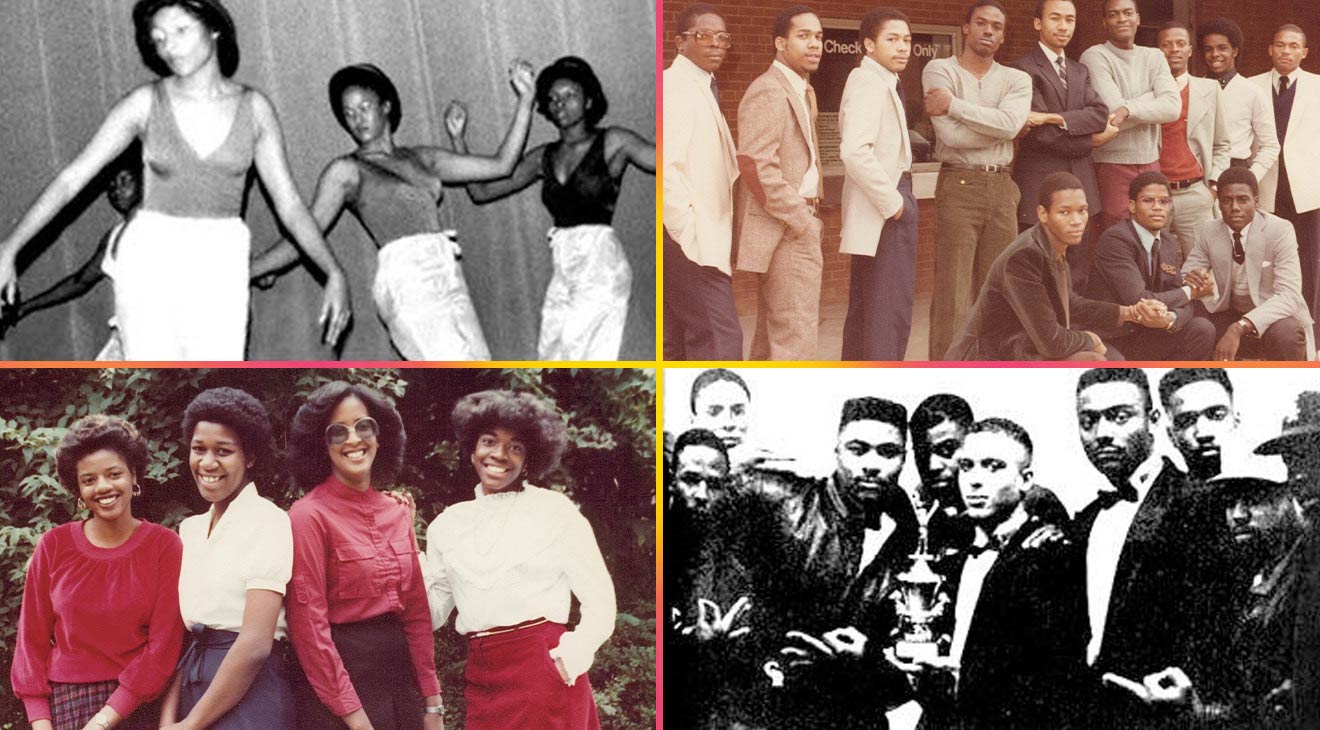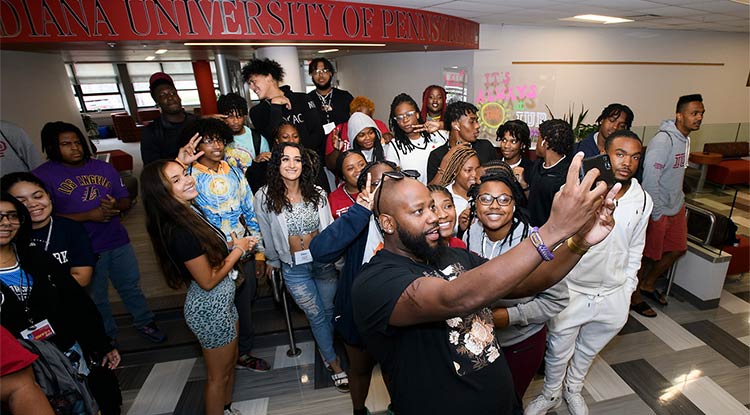Take Back the Night Events Announced
Mark your calendar: Take Back the Night 2026 is on Wednesday, April 8. Show your support for survivors of sexual assault. Let your voice be heard!
military-affiliated students
international students
of students are from minority groups
Find the latest IUP news and feature stories on topics related to diversity, equity, and inclusion.

Learn about this year’s winner of the Ray Coppler Disability Awareness Award. Named for its first student recipient, the award recognizes exemplary and creative contributions to disability awareness, advocacy, accessibility, support, and/or education.

Black students in the ’70s and ’80s often formed groups around like interests—from the arts to political action to service through fraternities and sororities. See how these groups built community at IUP, paving the way for future Black students.

The International Research and Exchange Board chose IUP and the IUP Research Institute to host two international visitors as part of the University Administration Support Program Fellowships in Research Management.

More than a dozen Black alumni, some of whom attended IUP 40 years apart, are working with their alma mater to improve the college experience for current Black students, putting them on a path to success.
These incidents may involve bias/discrimination, sexual misconduct, student conduct, cheating and other academic-integrity issues, student crises, and more. Different types of incidents are reported in different ways. Report them here.
See the procedure IUP follows to (1) assess the threat to safety, (2) investigate the incident, (3) work with the offending individual to educate and restore, (4) support the victims and affected community, and (5) communicate what is being done.
Find IUP policies that offer protection related to diversity, equity, and inclusion issues—from preferred first names to hazing to course scheduling for veterans.
Find helpful services on campus after reporting an incident of concern.

See how to get help for your academic, research, health and wellness, technology, and career-planning needs. Also, find scholarships and scholars programs of special interest to students from diverse backgrounds.

The campus provides these physical features and spaces to meet students’ diverse needs:
Make diversity, equity, and inclusion the focus of your studies by taking up one of these majors, minors, or certificate programs.

Students from around the world can improve their English language skills and their understanding of US academic culture.

Community Health, Counseling, Deaf Studies, Urban Education, and more


Anthropology, Criminology, Cultural Competencies, History, Philosophy, Political Science, Pre-law, Sociology, and more

Programs include Dance Leadership and Women’s and Gender Studies.

Lesbian, Gay, Bisexual, Transgender, and Queer Studies; Women’s and Gender Studies

Asian Studies, Foreign Languages, English, International Studies, and more